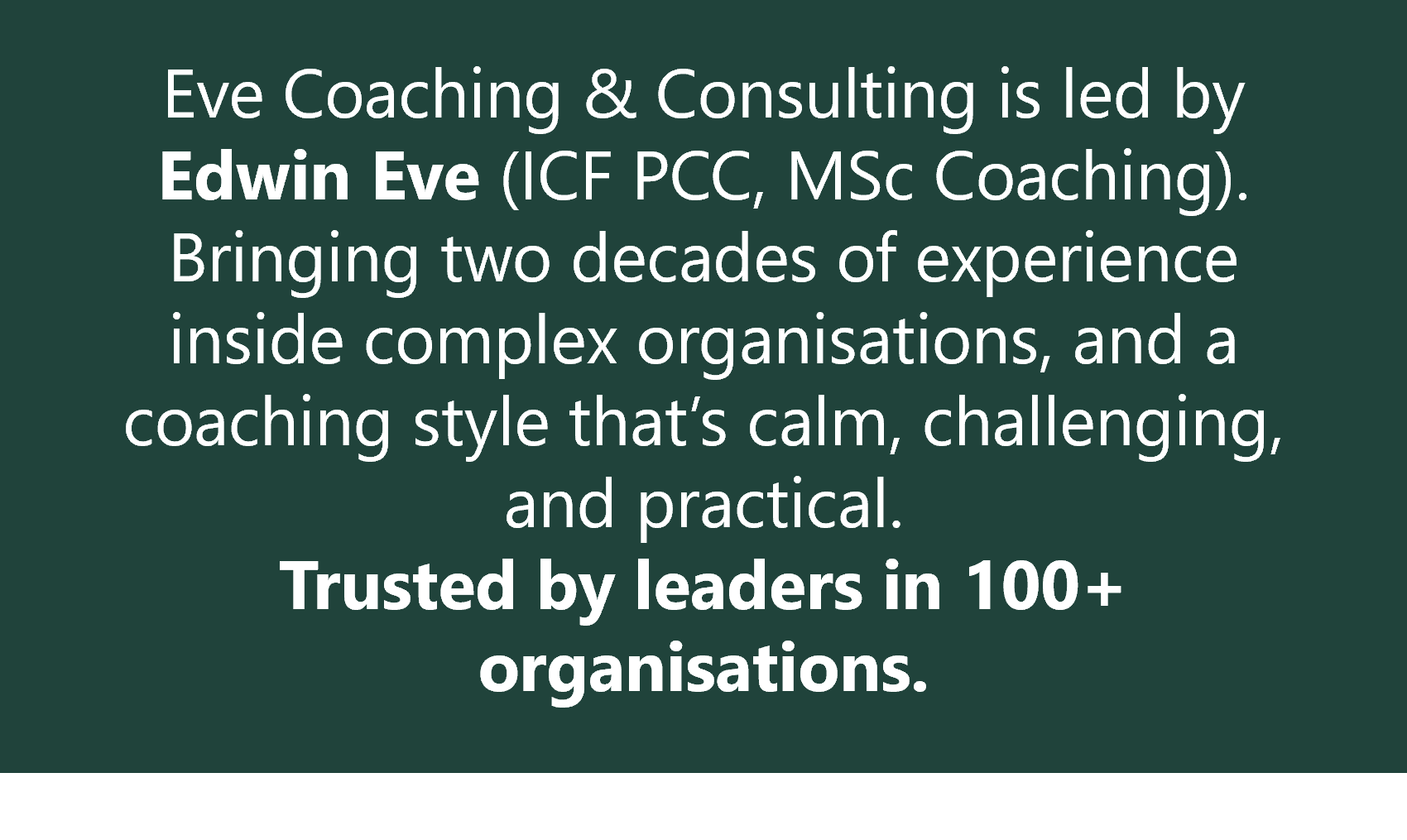The Seven Stages of Man: Shakespeare and Personal Development
Shakespeare’s “seven ages of man” is a vivid metaphor for how we grow and change. This guide translates the seven ages into practical leadership lessons you can use in coaching, career conversations and team offsites. Use the quick table, coaching questions and examples below to apply it in minutes.
Shakespeare's timeless wisdom has transcended centuries, captivating audiences with his profound insights into the human experience. In his play "As You Like It," Shakespeare famously presented the concept of the seven stages of man. While originally intended for the stage, these stages also provide a unique lens through which to view personal development and the journey of life. In this article, we will explore how Shakespeare's seven stages align with personal development, offering valuable lessons for those seeking self-improvement and growth.
While Shakespeare captured the emotional journey of a lifetime, his seven ages also map surprisingly well to the modern leadership journey
| Stage | Leadership & Developmental Lens | Reflective Question |
|---|---|---|
| 👶Infancy |
Beginnings & safety Onboarding and learning through observation, support and feedback. The core task is establishing trust and confidence in new environments. |
What relationships or conditions help you feel secure enough to learn and take risks? |
| 📚Schoolboy |
Habits & self-efficacy Skill-building, discipline and deliberate practice. Curiosity begins to replace compliance as leaders internalise growth routines. |
Which routines or habits would most strengthen your learning and consistency? |
| ❤️Lover |
Identity & values Motivation and meaning take centre stage. Passion drives progress, and reflection channels it into purposeful, relational impact. |
Where is your passion helping your impact, and where might it be narrowing your view? |
| 🛡️Soldier |
Mastery & integrity Commitment, resilience and conflict navigation. Strengths scale when balanced with vulnerability and effective delegation. |
Which battles align with your principles, and which drain your energy unnecessarily? |
| ⚖️Justice |
Stewardship & systems Acting from principle, holding multiple perspectives and shaping culture. Performance is balanced with fairness and long-term perspective. |
What values or principles will guide your next complex decision? |
| 🌱Old Age |
Generativity & legacy Focus shifts from personal achievement to mentoring, coaching and culture building. Influence is cultivated more than controlled. |
How will you capture and share your experience so others can grow? |
| 🌙Second Childhood |
Integration & humility Achievement gives way to presence and interdependence. Mature leaders lead with empathy, openness and care. |
Where might letting go of control create greater trust and effectiveness? |
Each of these stages offers a mirror for how we evolve as leaders - from curiosity and passion to wisdom, mentorship, and ultimately, humility. Used thoughtfully, it helps individuals and teams reflect on their current stage and what growth looks like next.
You can use this model as a conversation starter in 1:1 coaching or team offsites - especially when discussing career development, leadership identity, or succession planning.
🧩 1. Infancy: Foundations of Trust and Attachment
“Mewling and puking in the nurse’s arms.” according to Shakespeare!
The image captures total dependence and unformed identity. In developmental psychology, this aligns with Erikson’s Trust vs. Mistrust stage, where safety and care lay the foundation for exploration and learning.
In leadership, this mirrors early professional transitions: onboarding, stepping into a new system, or inheriting a new team. At this point, leaders need structure, reliable feedback and a sense of belonging. Bowlby’s attachment theory (1988) shows that secure foundations promote confidence and risk-taking. Edmondson (1999) later demonstrated this at scale through her work on psychological safety, where teams with trust learn faster and perform better.
💬 Coaching Cue: What environment or relationship helps you feel safe enough to learn and take risks?
🎒 2. Childhood: The Learning Mindset
“Creeping like snail unwillingly to school.”
This stage is about discipline, skill-building and early autonomy. Psychologically, it links to Erikson’s Autonomy vs. Shame and Bandura’s (1977) self-efficacy, describing how repeated success builds confidence.
In leadership terms, this is the period of mastering systems and learning social norms. Many professionals still define success through external validation, what Kegan (1982) called the Socialised Mind. Progress begins when curiosity replaces compliance and leaders start experimenting beyond the boundaries of “how things are done here.”
💬 Coaching Cue: Which habit, if strengthened for 30 days, would noticeably improve your impact?
❤️ 3. The Lover: Passion, Purpose and Identity
“Sighing like furnace.”
This stage represents energy, drive and the search for identity. Developmentally, it reflects Erikson’s Identity vs. Role Confusion and the move toward self-authorship (Kegan, 1982) - acting from internal values rather than external approval.
For leaders, passion becomes a double-edged sword. It fuels innovation and commitment, but without reflection, can limit empathy and perspective. Loevinger’s (1976) work on ego development describes how emotional maturity involves balancing conviction with openness - leading from values without imposing them.
💬 Coaching Cue: Where does your passion inspire, and where might it crowd out listening or nuance?
⚔️ 4. The Soldier: Mastery, Conflict and Integrity
“Full of strange oaths.”
Here, ambition, courage and discipline dominate. Psychologically, this aligns with Loevinger’s Conscientious Stage (1976), where identity centres on responsibility and achievement.
In organisational life, this is the “execution” phase - operational excellence, resilience and accountability. Yet the same strengths can lead to rigidity, burnout or defensiveness. Torbert (2004) described this as the Achiever mindset - highly productive but not yet reflective. Growth occurs when leaders begin developing others rather than proving themselves.
💬 Coaching Cue: What would delegation look like if you treated it as development for others, not just workload transfer?
⚖️ 5. The Justice: Stewardship and Systems Thinking
“In fair round belly with good capon lined.”
This stage embodies discernment and fairness. It corresponds to Kegan’s Self-Authoring Mind and Torbert’s Strategist stage, where leaders act from deeply held principles and see the organisation as a living system.
At this point, leaders integrate logic, empathy and long-term perspective. They hold paradox - balancing performance with purpose, control with collaboration. Cook-Greuter (2013) calls this the capacity for “multi-perspectival awareness,” where leadership becomes less about control and more about context-shaping.
💬 Coaching Cue: What principle or system effect will guide your next complex decision?
🪞 6. Old Age: Legacy, Mentoring and Generativity
This stage carries the calm of self-assurance. Psychologically, it corresponds with Erikson’s Generativity vs. Stagnation, the desire to nurture future generations and leave something of lasting value.
In leadership, this manifests as mentorship, culture stewardship and legacy-building. Success is no longer about personal achievement but collective resilience. Many leaders here embody post-heroic leadership, moving from directing to enabling and measuring their impact through others’ growth.
💬 Coaching Cue: What lesson do you most want to pass on, and how will you embed it so it lasts?
🌙 7. Second Childhood: Transcendence and Vulnerability
“Second childishness and mere oblivion.”
Far from decline, this stage reflects integration and humility. It resonates with Maslow’s (1971) self-transcendence and Loevinger’s Integrated Stage, where achievement gives way to meaning and presence.
Leaders here are comfortable with uncertainty and interdependence. They blend wisdom with openness, seeing vulnerability not as weakness but as wholeness. Torbert’s Alchemist stage (2004) captures this capacity to act decisively while holding outcomes lightly - a hallmark of mature, self-aware leadership.
💬 Coaching Cue: Where would letting go of control create more effectiveness and ease for you and your team?
🧠 Developmental Takeaway
Shakespeare’s seven ages offer more than metaphor. They align closely with decades of developmental psychology and adult learning theory, showing how leaders evolve in meaning, perspective and impact.
Each stage has its purpose, challenge and potential. Coaching provides the reflective space to recognise where you are, integrate what you’ve learned, and prepare for what’s next.
💬 Coaching Cue: What small experiment could you run this week?
Conclusion
Shakespeare's seven stages of man offer a unique perspective on personal development, underscoring the cyclical nature of life and the importance of growth, reflection, and adaptability. As we journey through these stages, we have the opportunity to embrace each phase, learn from our experiences, and continue evolving as individuals. Shakespeare's timeless wisdom serves as a reminder that personal development is a lifelong endeavor, and each stage has its unique beauty and significance.
FAQ
Q. Is Shakespeare’s seven ages useful for modern leaders?
Yes - used as a reflective lens, it opens high-quality conversations about identity, judgement, succession and support. Pair with evidence-based diagnostics for decisions.
Q. What’s a fast way to use it with my team?
Pick the stage that matches your team’s current challenge and discuss the coaching question in the table for 15 minutes.
📚 References
Bandura, A. (1977). Self-Efficacy: Toward a Unifying Theory of Behavioral Change. Psychological Review, 84(2), 191–215.
Bowlby, J. (1988). A Secure Base: Parent-Child Attachment and Healthy Human Development. Basic Books.
Cook-Greuter, S. (2013). Nine Levels of Increasing Embrace in Ego Development Theory.
Edmondson, A. (1999). Psychological Safety and Learning Behavior in Work Teams. Administrative Science Quarterly, 44(2), 350–383.
Erikson, E. H. (1950–1982). Childhood and Society; The Life Cycle Completed. Norton.
Kegan, R. (1982). The Evolving Self. Harvard University Press.
Loevinger, J. (1976). Ego Development. Jossey-Bass.
Maslow, A. (1971). The Farther Reaches of Human Nature. Viking Press.
Torbert, W. R. (2004). Action Inquiry: The Secret of Timely and Transforming Leadership. Berrett-Koehler.
Shakespeare, W. (As You Like It, Act II, Scene VII).
👉 Curious how these insights apply to you or your own leadership team?
Let’s explore where coaching could create measurable impact for your organisation.
📞 Book a 30-minute consultation
Take a look at our 1:1 Coaching or Team Development Coaching approaches
Alternatively….
📖 Need some clarity? Read the FAQ
📚 My Book Reading list on the themes of change
🎥 Watch the Change Video listings








